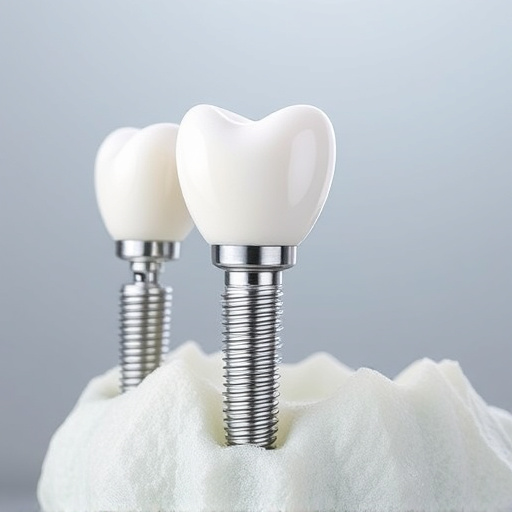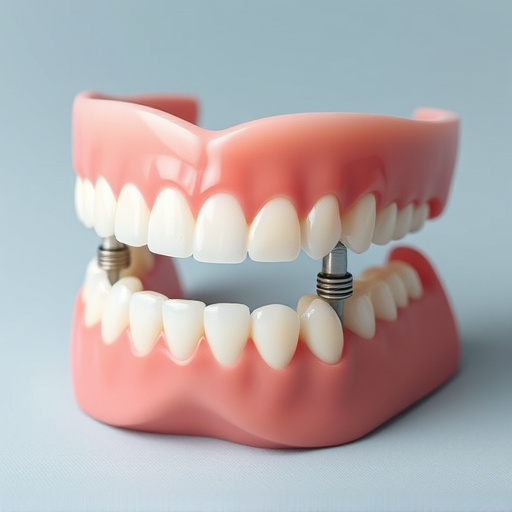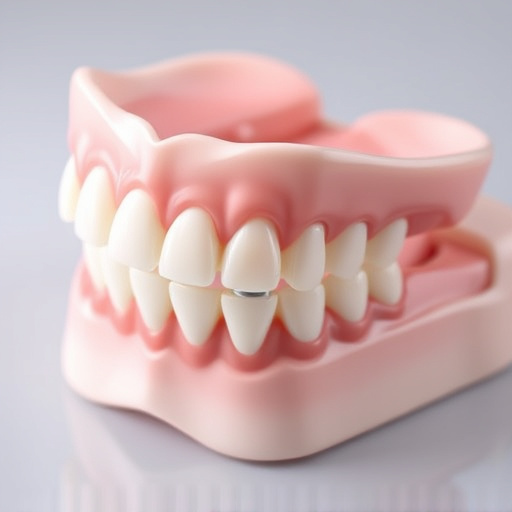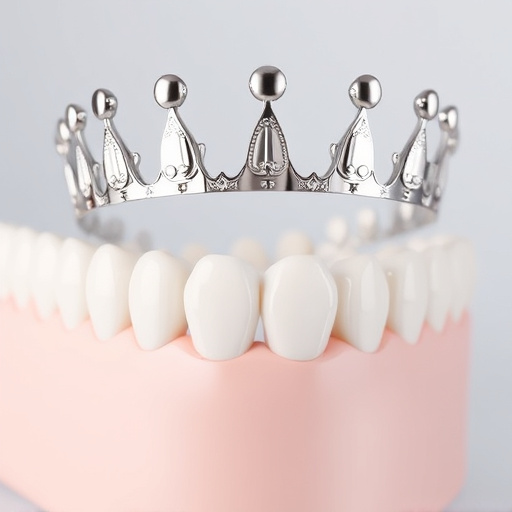Ignoring early TMJ disorder signs can lead to severe symptoms and complications. Behavioral triggers like teeth clenching or grinding should be addressed through preventive dentistry for effective TMJ disorder treatment. Prompt intervention with restorative dentistry techniques can offer relief and prevent costly future treatments.
Do you experience persistent jaw pain or headaches that just won’t go away? Are you grinding your teeth or clenching your jaw, often without realizing it? These could be signs of TMJ disorder, a common yet often overlooked condition. The good news is early intervention through targeted TMJ disorder treatment can significantly improve symptoms and prevent further complications. Read on to learn the top signs indicating that it’s time to seek professional help for TMJ disorder treatment.
- Recognizing Physical Symptoms: Jaw Pain & Headaches
- Uncovering Behavioral Triggers: Clenching & Grinding
- When Timely Intervention Is Crucial for TMJ Health
Recognizing Physical Symptoms: Jaw Pain & Headaches
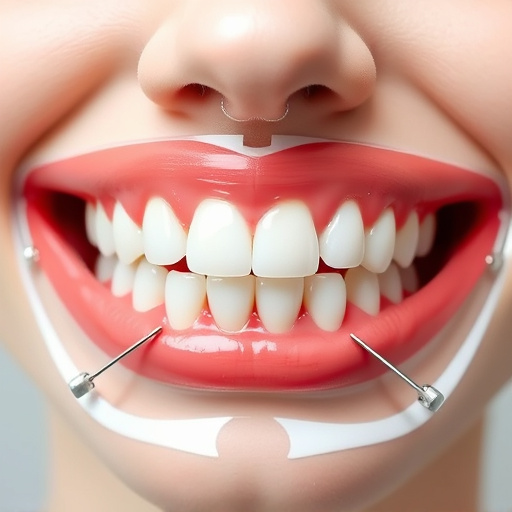
Many people overlook the signs of TMJ disorder, dismissing them as temporary discomforts. However, persistent issues can greatly impact your quality of life. One of the most prevalent physical symptoms is jaw pain, often described as a dull ache or sharp agony. This discomfort can radiate to the head and neck regions, making it hard to chew or open your mouth wide. Headaches are another frequent companion, ranging from mild throbs to intense migraines. These headaches typically manifest in the temple or occipital areas and may be triggered by jaw movement.
If you frequently experience these symptoms, it could indicate an underlying TMJ disorder that requires prompt attention. Seeking specialized care through TMJ disorder treatment can offer relief and prevent further complications. Consider consulting a dentist who provides preventive dentistry services, which may include recommendations for cosmetic fillings or tooth repair to address any contributing factors.
Uncovering Behavioral Triggers: Clenching & Grinding

Many people suffering from TMJ disorder (TMD) are unaware of the potential behavioral triggers contributing to their condition. One of the most common and easily identifiable signs is the habit of clenching or grinding teeth, often during sleep. This behavioral trigger can lead to significant dental issues and further complicate TMD symptoms. If you notice persistent jaw clenching or grinding, it’s essential to consult a dentist specializing in TMJ disorder treatment, especially if it’s causing discomfort or damage to your teeth.
Family dentistry practices often emphasize the importance of early intervention for such habits. Preventive dentistry is key to managing TMD, and addressing these behaviors can be a crucial step towards finding relief. Children’s dentistry professionals are also equipped to identify and guide young patients away from clenching and grinding, which can become lifelong habits if left unaddressed.
When Timely Intervention Is Crucial for TMJ Health
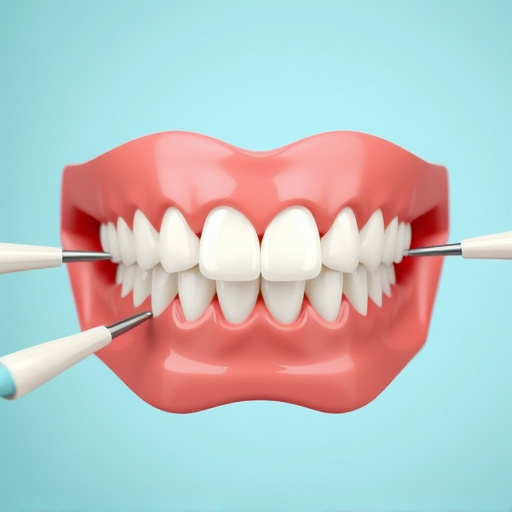
The TMJ (temporomandibular joint) is a complex structure that facilitates jaw movement and bite alignment. When this intricate system experiences dysfunction, it can lead to severe discomfort and quality-of-life issues. Timely intervention is crucial for maintaining optimal TMJ health, as left untreated, even minor symptoms can escalate into more significant problems.
Early indications of TMJ disorder include facial pain, jaw stiffness, and popping or clicking sounds during jaw movement. If you’re experiencing these symptoms, it’s essential to seek comprehensive dental care. Restorative dentistry techniques, such as dental crowns, can play a pivotal role in restoring proper bite alignment and alleviating pressure on the TMJ. Prompt action ensures that simple treatments can address the issue before it progresses, potentially avoiding complex and costly procedures in the future.
If you’re experiencing persistent jaw pain, headaches, clenching, or grinding teeth, it could be a sign of TMJ disorder. Don’t wait for symptoms to worsen; early intervention through appropriate TMJ disorder treatment is key to managing discomfort and preserving your joint health. Addressing these issues promptly can prevent further damage and improve your overall quality of life.





